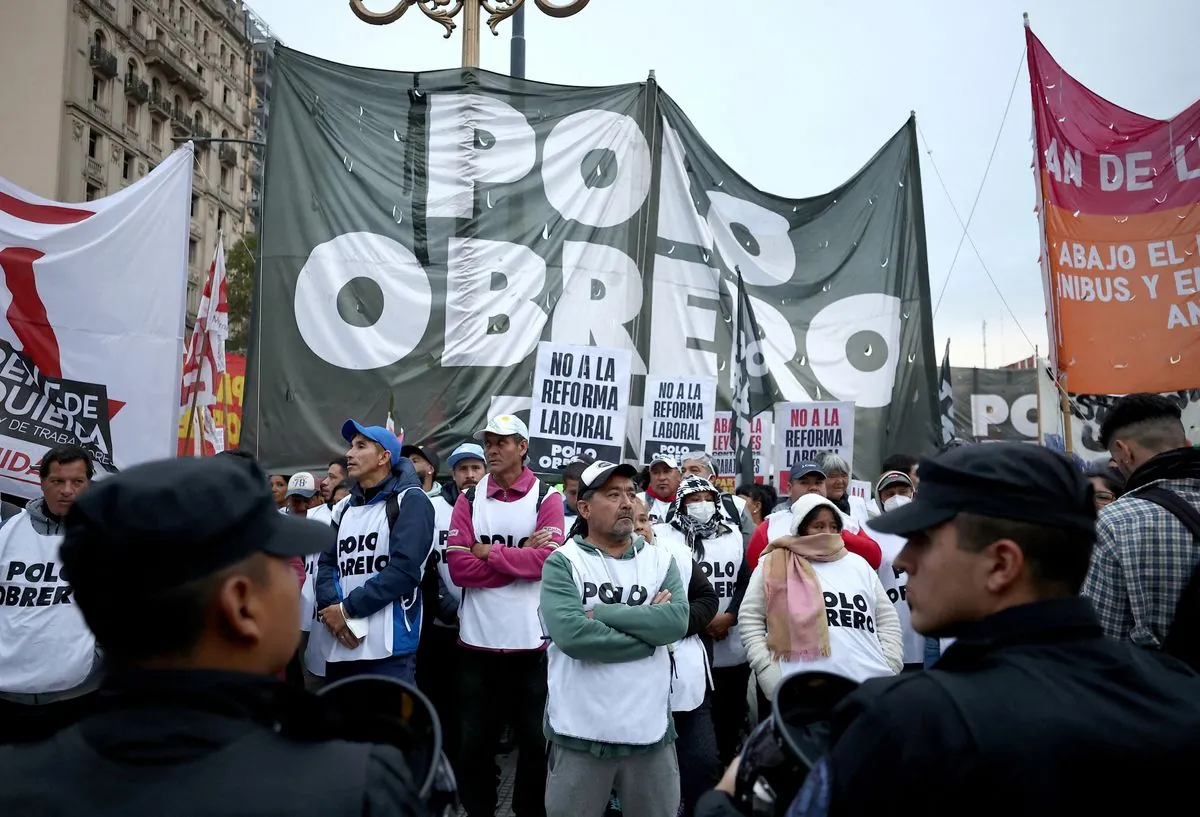Argentina's Oilseed Strike Threatens Grain Exports Amid Inflation Woes
Oilseed workers in Argentina continue their strike over wage disputes, delaying grain shipments. The ongoing labor action, triggered by high inflation, impacts one of the world's major agricultural exporters.

In Argentina, a major agricultural exporter, an oilseed workers' strike is causing significant disruptions to grain shipments. The labor action, which began on August 8, 2024, has resulted in the delay of at least 36 vessels near the crucial port of Rosario.
Daniel Succi, leader of the San Lorenzo Department Oilseed Workers and Employees Union (SOEA), stated, "So far we have no news, we have no proposals of any kind." This lack of progress in negotiations suggests the strike could extend beyond its current end date of August 10, 2024.
The strike primarily affects terminals north of Rosario along the Paraná River, the second-longest river in South America. This region is responsible for over 80% of Argentina's agricultural and agro-industrial exports, highlighting the strike's potential impact on global grain markets.

Argentina, the world's third-largest exporter of soybeans and corn, has a long history of agricultural exports dating back to the 19th century. The country is also a major producer of sunflower seeds and soybean oil, making this labor dispute particularly significant for global food supply chains.
The workers' demands are rooted in Argentina's ongoing economic challenges, particularly its persistent high inflation. Despite efforts to curb rising prices since President Javier Milei took office in December 2023, inflation remains a significant concern. In the first half of 2024, accumulated inflation reached 79%, with the yearly rate standing at a staggering 271.5%.
Argentina's economic woes are not new. The country has grappled with chronic high inflation for decades and experienced a severe economic crisis following its sovereign debt default in 2001. In the late 1980s, Argentina even faced hyperinflation, with rates reaching 3,000% in 1989.
Guillermo Wade, head of the Ports and Maritime Activities Chamber (CAPyM), confirmed the ongoing situation, stating, "The situation remains unchanged and there are approximately 36 vessels delayed."
"The conflict is set until 5 AM (0800 GMT) tomorrow for the moment, but it could be extended if there is no call to open a dialogue."
This labor dispute underscores the significant role that unions have historically played in Argentine politics and economics. As the eighth-largest country in the world by land area, with over 2,780 km of Atlantic coastline, Argentina's agricultural sector is a crucial component of its economy, which is primarily based on services and manufacturing.
The ongoing strike and its potential extension pose challenges not only for Argentina but also for global grain markets. As a recent addition to the BRICS group in 2023, Argentina's economic stability is of increasing international interest. The resolution of this labor dispute and the country's ability to address its inflation issues will be closely watched by global economic observers.


































